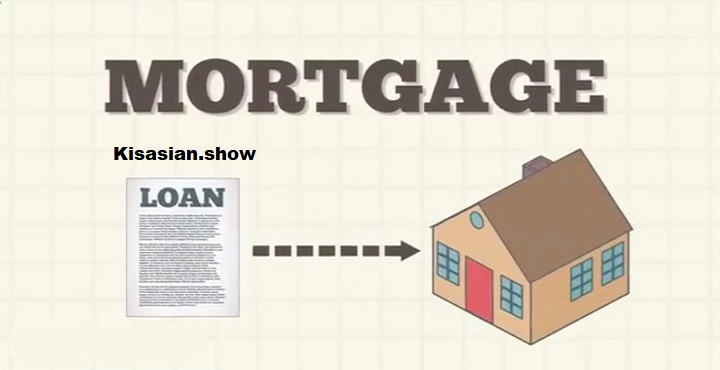A Complete Guide to Understanding Mortgages
A mortgage is a type of financial instrument that is essential to many people’s journey toward becoming homeowners. Taking out a loan to buy a property is a complicated and large financial commitment. Whether you are an experienced real estate investor or a first-time home buyer, knowing the basics of mortgages is essential for making wise financial decisions.
Principal Players in a Mortgage:
Debtor:
The person or organization applying for financial aid to buy a house is referred to as the borrower, sometimes known as the mortgagor. The loan amount will be repaid by the borrower over a predetermined period, usually in monthly installments.
Lender:
The financial institution or person supplying the funds for the mortgage is the lender, commonly referred to as the mortgagee. A bank, credit union, or mortgage firm could be this.
Credit Officer:
Helping the applicant with the mortgage application process is the loan officer, who works as a representative of the lending institution. In addition to helping the borrower select the best mortgage package, they assess their financial status and assist with the application and approval processes.
Different Mortgage Types:
Mortgages with a set rate:
The interest rate on a fixed-rate mortgage stays the same for the duration of the loan. Because the monthly payments don’t change, borrowers benefit from stability and predictability. For long-term financial planning, fixed-rate mortgages are frequently selected.

ARMs, or adjustable-rate mortgages:
ARM interest rates are subject to periodic changes based on changes in a comparable financial index, which sets them apart from fixed-rate mortgages. ARMs are a good option for borrowers who expect their financial circumstances to change because these adjustments may result in variances in monthly payments.
Indeed, even things to search for in a home loan
- The size of the credit
- The financing cost and any related focuses
- The end expenses of the advance, including the bank’s charges
- The Yearly Rate (APR)
- The sort of financing cost and whether it can change (is it fixed or movable?)
- The credit term, or how long you need to reimburse the advance
- Whether the credit has other unsafe elements, for example, a pre-installment punishment, an
- inflatable condition, an interest-just component, or negative amortization
- Center around a home loan that is reasonable for you given your different needs, not on the amount you fit the bill for.
Banks will let you know the amount you are able to get – that is, the amount they will loan you. A few web-based number crunchers will look at your pay and obligations and concoct comparable responses. Yet, the amount you could get is altogether different from the amount you can stand to compensate without extending your spending plan for other significant things excessively meager. Banks don’t consider all your family and monetary conditions. To know the amount you can stand to reimburse, you’ll have to seriously investigate your family’s pay, costs and reserve funds needs to see what fits easily reasonably affordable for you.
Key Action Items
A home loan is a drawn out credit from a monetary organization that assists you with buying a home, with the actual home filling in as guarantee.
Contract installments normally comprise of head (the sum acquired), interest, local charges and property holders protection. They can likewise incorporate home loan protection or an assurance expense.
There are a few sorts of home loans, including adjusting standard mortgages, kind sized credits, FHA and VA credits.
While looking at contract offers, it’s vital to consider the credit type, advance term, loan cost and the absolute related charges.
Taking out a home loan is the greatest monetary commitment the greater part of us will at any point expect. So it’s fundamental to comprehend what you’re marking on for when you get the means to purchase or fabricate a house.
How Does a home loan function?
At the point when you get a home loan, you have a set credit term to reimburse the obligation as well as a complete credit add up to reimburse. Most of your regularly scheduled installment will be involved interest and head, otherwise called your credit balance.
“Every month, part of your month to month contract installment will go toward taking care of that head, or home loan equilibrium, and part will go toward interest on the credit,” makes sense of Robert Kirkland, a home loan industry favorable to turned-monetary counsel with Preal Haley and Partners in Greenbelt, Maryland. As the credit is paid off, a bigger piece of the installment will go towards head.
Most home loans are completely amortized, significance they’re reimbursed in portions — standard, equivalent (typically) installments on a set timetable, with the last installment taking care of the credit toward the finish of the term. The exemption for this is the unprecedented inflatable home loan, where you pay a singular amount toward the finish of the credit term.
Contracts are additionally gotten credits, implying that they are supported by guarantee — for this situation, your home. This intends that, assuming you neglect to pay your home loan, your home can go into abandonment and your bank can recover it.
While you might feel a house is yours, “you don’t in fact possess the property until your home loan credit is completely paid,” says Bill Packer, COO of Longbridge Monetary in Parsippany, New Jersey. “Normally, you will likewise sign a promissory note at shutting, which is your own vow to reimburse the credit.”
Remember different expenses while thinking of your optimal installment.
Costs, for example, property holder’s protection, local charges, and confidential home loan protection are commonly added to your month to month contract installment, so make certain to incorporate these expenses while ascertaining the amount you can manage. You can get gauges from your nearby expense assessor, protection specialist and bank. Knowing the amount you can easily pay every month will likewise assist you with assessing a sensible cost range for your new home.
Mortgages Backed by Government:
Some mortgages are guaranteed or insured by the government through organizations like the U.S. Department of Agriculture (USDA), the Department of Veterans Affairs (VA), and the Federal Housing Administration (FHA). These initiatives aim to increase the accessibility of homeownership, particularly for veterans and first-time purchasers.
The procedure for mortgages:
Prior Authorization:
Prospective buyers frequently ask for pre-approval from a lender before actively looking for a property. A pre-approved loan amount is provided by the lender after assessing the borrower’s creditworthiness. The buyer’s negotiating position is strengthened and the acquisition procedure is expedited with pre-approval.
Applying for a Loan:
The borrower files an official loan application with the lender after selecting a property. The application contains comprehensive details regarding the property itself, the borrower’s work history, and their financial condition.
Assuring:
The underwriting department of the lender examines the borrower’s application, evaluates the risk, and decides whether to grant the loan. Verifying financial records, valuing the property, and making sure the borrower satisfies the lender’s requirements are all part of this procedure.
Variables Affecting Mortgage Rates:
Score on Credit:
An applicant’s credit score is a major factor in deciding their mortgage interest rate. Since higher credit scores signify a lower risk for the lender, cheaper interest rates are typically the outcome.
Initial Payment:
The interest rate may change depending on how much the borrower puts down as a down payment. Because it lowers the loan-to-value ratio and shows financial stability, a bigger down payment can result in a cheaper interest rate.
Loan Duration:
Whether a mortgage is for 15 years or 30 years, the duration of the loan term might affect the interest rate. Though their monthly payments are larger, loans with shorter terms frequently have cheaper interest rates.
Market circumstances:


